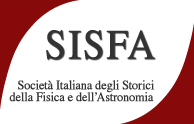Speaker
Description
Both casual readers and long-time enthusiasts of Feynman's Lectures on Physics, when reaching the section entitled “Planetary Motions” [1], sense they are experiencing content rarely available elsewhere, delivered via a strategy quite unique in the history and practice of introductory physics pedagogy and basic scientific computing. In fact, a careful reading makes it obvious that, although this piece by Feynman is not so widely known as other writings by him, it is scientifically, historically, and philosophically even more exciting today than six decades ago. In this paper, we review and place within the proper context several aspects of this seemingly elementary and yet stunningly rich Section by analyzing the powerful tools it introduces, their connections with the traditions of classical celestial mechanics, and their profound meaning in current computational dynamics research. As we shall see while analyzing Feynman's handwritten Lectures Notes, as well as photographs and audio recordings in the collection curated at Caltech, “Planetary Motions” became recognized as the most exemplary and ambitious such presentation within a genre populated by very few peers. As such, it was reproduced, in its entirety and verbatim, by several other authors. Feynman, bound shortly to share the physics Nobel prize, only appears to his readers to be toying with arithmetic and a slide rule. In fact, while solving a difficult problem ultimately closely connected to Kepler's equation, he presents us with crucial philosophical issues regarding the potential of simulations to reproduce physical reality with arbitrary accuracy so as to represent an independent source of knowledge additional to experimentation and theory.
Bibliography
[1] R. P. Feynman, R. B Leighton, and M. Sands, Feynman's Lectures on Physics (Caltech, Pasadena, 1963). Sec. 9-7.

